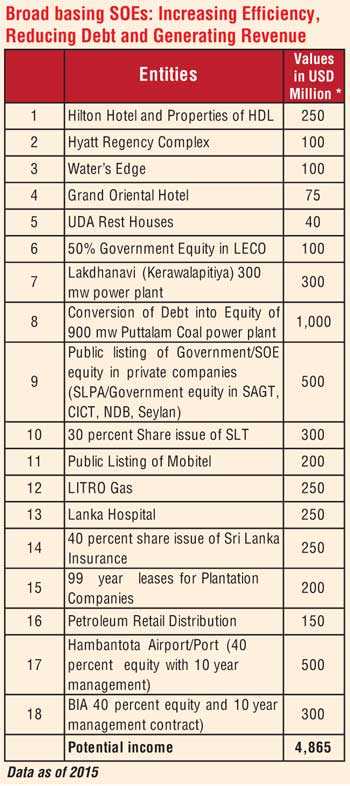Friday Feb 27, 2026
Friday Feb 27, 2026
Monday, 2 December 2019 00:00 - - {{hitsCtrl.values.hits}}
Today the world over airports, ports, roads, power plants, railways, etc., are being operated by the private sector and/or through public-private partnerships. Sri Lankans when they travel abroad do not think twice when they fly on privately owned airlines, land in privately operated airports, travel on privately operated toll roads, or get their electricity from privately generated power facilities. However, over the 70 years since Independence, Sri Lanka’s leaders have not had the courage, nor our private sector leaders the vision or drive, to emulate this global phenomenon locally. 
Vested interests ranging from parochial politicians, trade unions, oligarchs and other rent seekers, have protected their benefits by providing suboptimal services to the public. In 2015, with the election of the Yahapalanaya government, the Pathfinder Foundation put out a table of under-utilised government assets that we felt should be sold to private investors or be opened to private-public partnerships in order to both raise revenue for the Government, and more importantly, to kickstart a moribund economy.
Since, neither then government nor the private sector took notice of these recommendations, the Pathfinder Foundation is once again presenting this table, entitled Broad basing SOEs: Increasing Efficiency, Reducing Debt and Generating Revenue, in the hope that the new Government would consider this proposal when formulating policy and that the private sector would include these proposals in their lobbying initiatives.
Update
Based on the currently available data there are 422 State Owned Enterprises (SOEs) in Sri Lanka contributing to 13% of GDP. The exact number of SOEs is, however, open to question for different reasons including the legal definition. Out of this number 54 have been classified as strategic State Owned Business Enterprises (SOBEs). The total asset base of these SOBEs amount to Rs. 7.6 trillion by the end of 2017 which was 57% of GDP.
While the aggregate net profit of all SOBEs amounted to be a loss of Rs. 27 billion in 2018. There were 17 SOBEs which made Rs. 158 billion aggregate losses, which outnumbered the aggregate profits of others. The profits were reported mainly by the state-owned banks and non-bank financial institutions as well as Trust Funds. The biggest losses were reported by the CPC (Rs. 104 billion), CEB (Rs. 30 billion), and the Sri Lankan Airline (Rs. 17 billion). The Government has also collected Rs. 37 billion as income from levy, and Rs. 4.6 billion as dividends from the SOBEs.